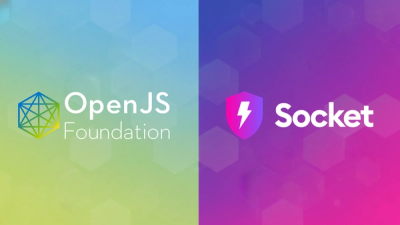
Research
SANDWORM_MODE: Shai-Hulud-Style npm Worm Hijacks CI Workflows and Poisons AI Toolchains
An emerging npm supply chain attack that infects repos, steals CI secrets, and targets developer AI toolchains for further compromise.
img-loader
Advanced tools
Image minimizing loader for webpack 4, meant to be used with url-loader, file-loader, or raw-loader
img-loader has a peer dependency on imagemin, so you will need to make sure to include that, along with any imagemin plugins you will use.
$ npm install img-loader --save-dev
module: {
rules: [
{
test: /\.(jpe?g|png|gif|svg)$/i,
use: [
'url-loader?limit=10000',
'img-loader'
]
}
]
}
By default the loader simply passes along the image unmodified.
Options are forwarded to imagemin.buffer(image, options), so any plugins you would like to use for optimizing the images are passed as the plugins property.
For more details on each plugin's options, see their documentation on Github.
{
module: {
rules: [
{
test: /\.(jpe?g|png|gif|svg)$/i,
use: [
'url-loader?limit=10000',
{
loader: 'img-loader',
options: {
plugins: [
require('imagemin-gifsicle')({
interlaced: false
}),
require('imagemin-mozjpeg')({
progressive: true,
arithmetic: false
}),
require('imagemin-pngquant')({
floyd: 0.5,
speed: 2
}),
require('imagemin-svgo')({
plugins: [
{ removeTitle: true },
{ convertPathData: false }
]
})
]
}
}
]
}
]
}
}
plugins can also be a function, which will receive the webpack loader context and should return the plugins array.
{
module: {
rules: [
{
test: /\.(jpe?g|png|gif|svg)$/i,
use: [
'url-loader?limit=10000',
{
loader: 'img-loader',
options: {
plugins (context) {
if (process.env.NODE_ENV === 'production') return []
return [
require('imagemin-svgo')({
plugins: [
{ cleanupIDs: false },
{
prefixIds: {
prefix: path.basename(context.resourcePath, 'svg')
}
}
]
})
]
}
}
}
]
}
]
}
}
If you only want to run imagemin in production builds, you can omit the img-loader or leave plugins empty in your production configuration file. If you don't keep a separate configuration for prod builds, something like the following also works:
{
loader: 'img-loader',
options: {
plugins: process.env.NODE_ENV === 'production' && [
require('imagemin-svgo')({})
// etc.
]
}
}
To get the default behavior from version 2.0.1, you'll need to install these imagemin plugins:
Then use this loader setup in your webpack configuration file:
{
loader: 'img-loader',
options: {
plugins: [
require('imagemin-gifsicle')({}),
require('imagemin-mozjpeg')({}),
require('imagemin-optipng')({}),
require('imagemin-svgo')({})
]
}
}
The options object you had under a plugin's name property, should instead be passed directly to the plugin after you require it.
If you used the optional pngquant settings, then you will additionally need to install imagemin-pngquant, and add it to your plugins array as any other imagemin plugin.
This software is free to use under the MIT license. See the LICENSE-MIT file for license text and copyright information.
FAQs
Image minimizing loader for webpack 4
We found that img-loader demonstrated a not healthy version release cadence and project activity because the last version was released a year ago. It has 1 open source maintainer collaborating on the project.
Did you know?

Socket for GitHub automatically highlights issues in each pull request and monitors the health of all your open source dependencies. Discover the contents of your packages and block harmful activity before you install or update your dependencies.

Research
An emerging npm supply chain attack that infects repos, steals CI secrets, and targets developer AI toolchains for further compromise.

Company News
Socket is proud to join the OpenJS Foundation as a Silver Member, deepening our commitment to the long-term health and security of the JavaScript ecosystem.

Security News
npm now links to Socket's security analysis on every package page. Here's what you'll find when you click through.